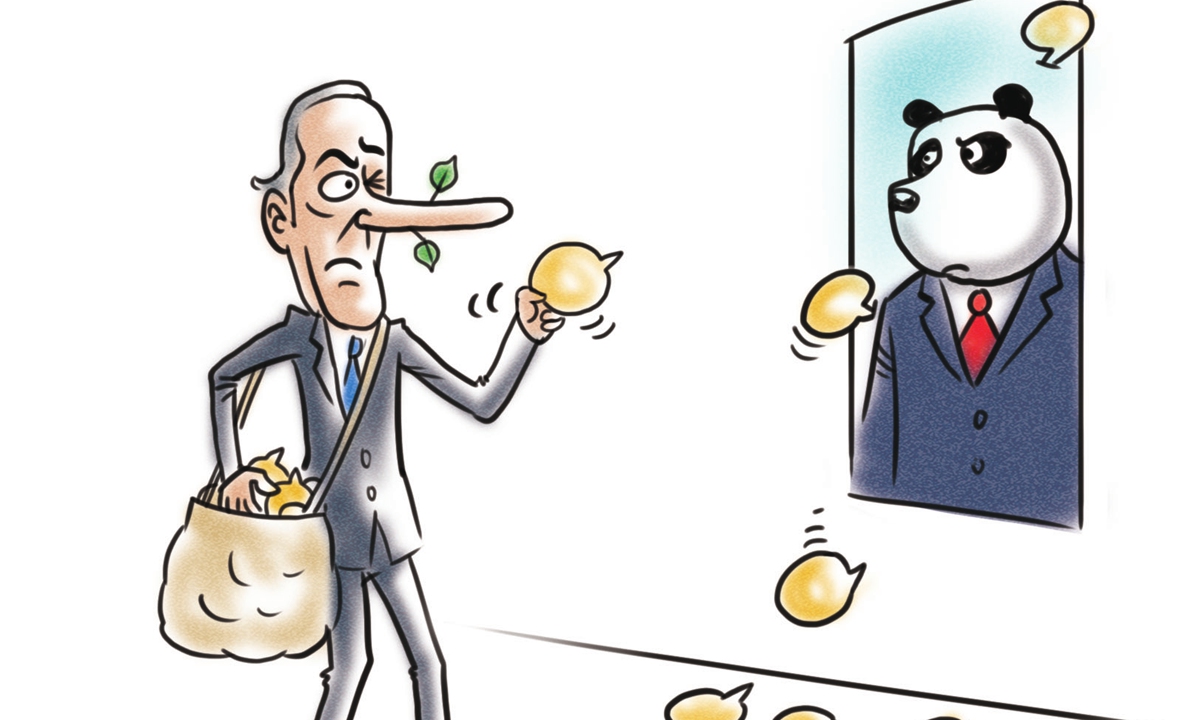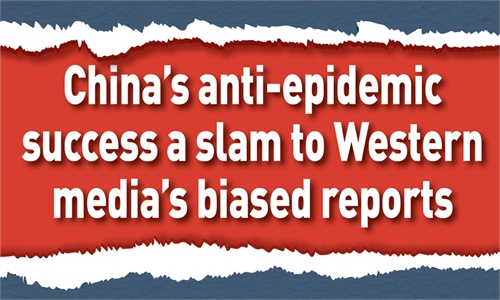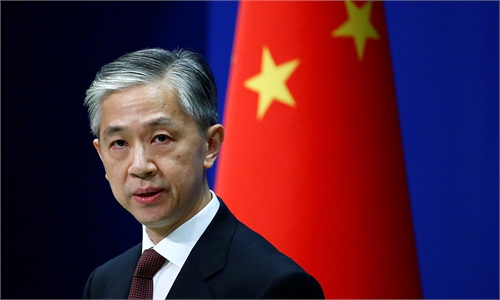
Illustration: Liu Rui/GT
The Times on January 9 devoted a full page of its print edition to an article titled "British Youtubers funded by China," written by Ben Ellery and Tom Knowles, two reporters of that media outlet. It said "the Chinese government is funding British YouTube stars," including Lee Barrett and his son Oli Barrett, "to produce pro-China propaganda videos." It mentioned "an investigation by the Times can reveal," but did not say what kinds of "investigation."
The Barretts said their opinions are merely based on their own experience. Their videos are about topics like, "Do NOT judge China if you have NEVER BEEN," "Why China has the best train network in the world," or "China is the most diverse country in the WORLD." From the perspective of a native Chinese, their rhetoric is objective and just an introduction about their life and personal view on China, nothing too fancy.
In the article by the Times, the first example to prove their accusation was that in a YouTube video by Lee, he praised the "camps" in northwest China's Xinjiang Uygur Autonomous Region. The article used the narrative toward the "camps" by the Australian Strategic Policy Institute (ASPI) to prove Lee Barrett's narratives were part of "Communist Party propaganda."
What on earth is the ASPI? It was reported the institute has long received financial support from the US government and arms dealers. The institute has been keen on fabricating and hyping various anti-China topics and spreading rumors to stigmatize and demonize China. It has been notorious for throwing out fallacies on Xinjiang-related issues that are unfounded and full of illusions and groundless suppositions. The article sounds not convincing by referring to the ASPI's rhetoric as a benchmark to prove the allegation toward Lee Barrett.
Another piece of evidence mentioned was that the Times has found that some of Barrett's videos were funded by state-run Chinese Radio International (CRI). Lee Barrett on Friday clarified that such organizations invited a number of influencers to some events, then used their comments on these events for Chinese media reports. These organizations paid for transportation, accommodations and meals. Influencers can make their own content, but there is "no contract" saying they "must make content on any particular kind."
From the perspective of Western media, what Barrett did wrong was to display that the Chinese people live a happy life and Chinese governance works in their videos. In boundaries of "political correctness" in the West, China can only be described as an "evil country," where people are living a miserable life.
On several of China's video-sharing apps, some Chinese vloggers living or studying in Western countries also make videos to share their experiences. Many of them praise Western lifestyles and manners, which deserve our learning. However, I have not heard any Chinese media outlet label them as "funded by Western countries" to "produce pro-West propaganda videos."
Western elites are reluctant to see China's progress as they cannot accept a country whose political system and path it follows are completely different from the West to receive such a remarkable achievement. When the Western governance encounters challenges, these elites do not want ordinary people in their countries to see what China really is, in case it triggers ordinary people's suspicion of their governance and undermine their rule.
Media outlets often represent the mentality of the elites in a country. But it is doubtful how many people in the West can still be brainwashed by their media outlets. At least judging from the views made under Barrett's videos on YouTube, only a few people believe what the Western media outlet said in this article.



